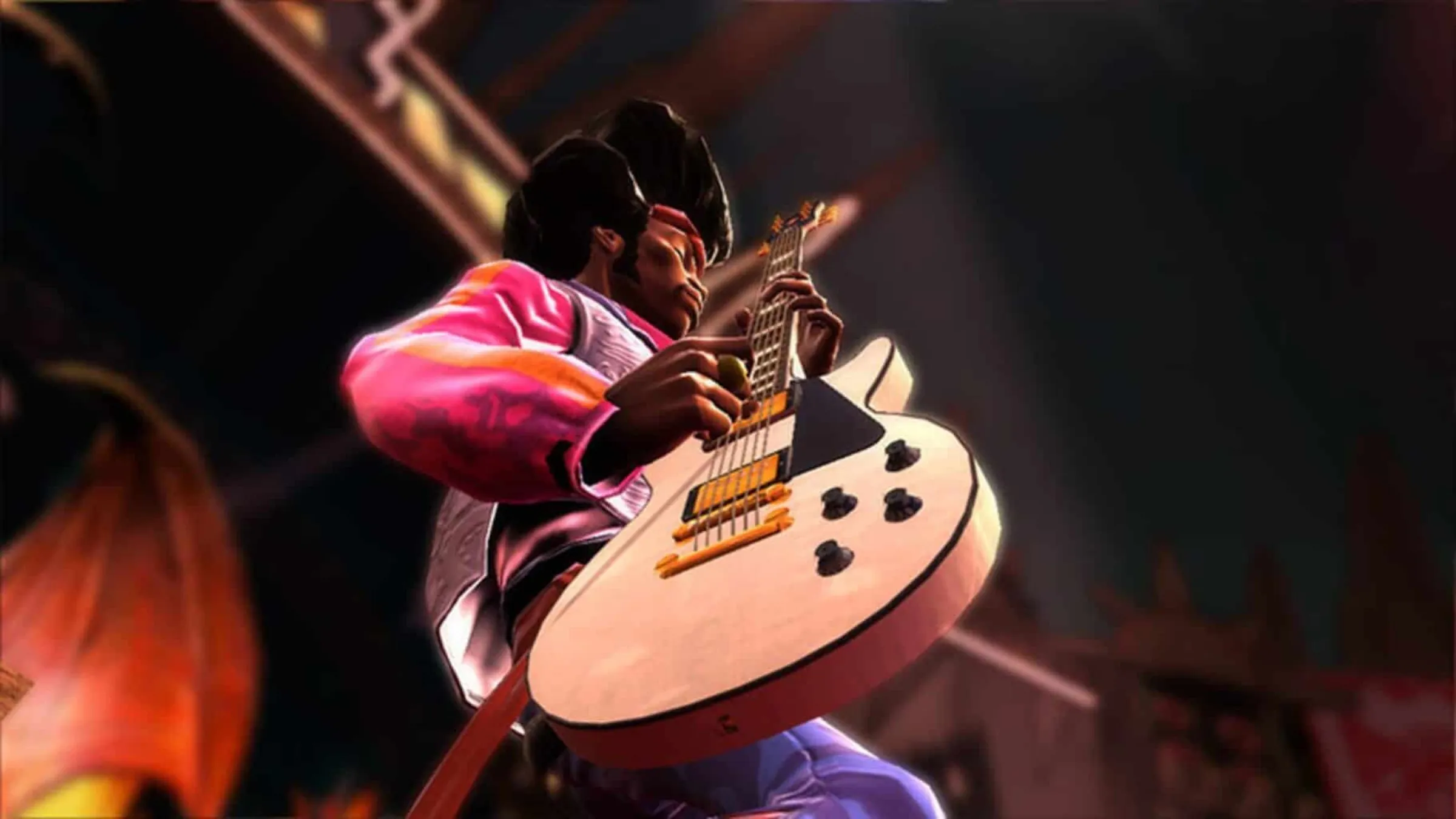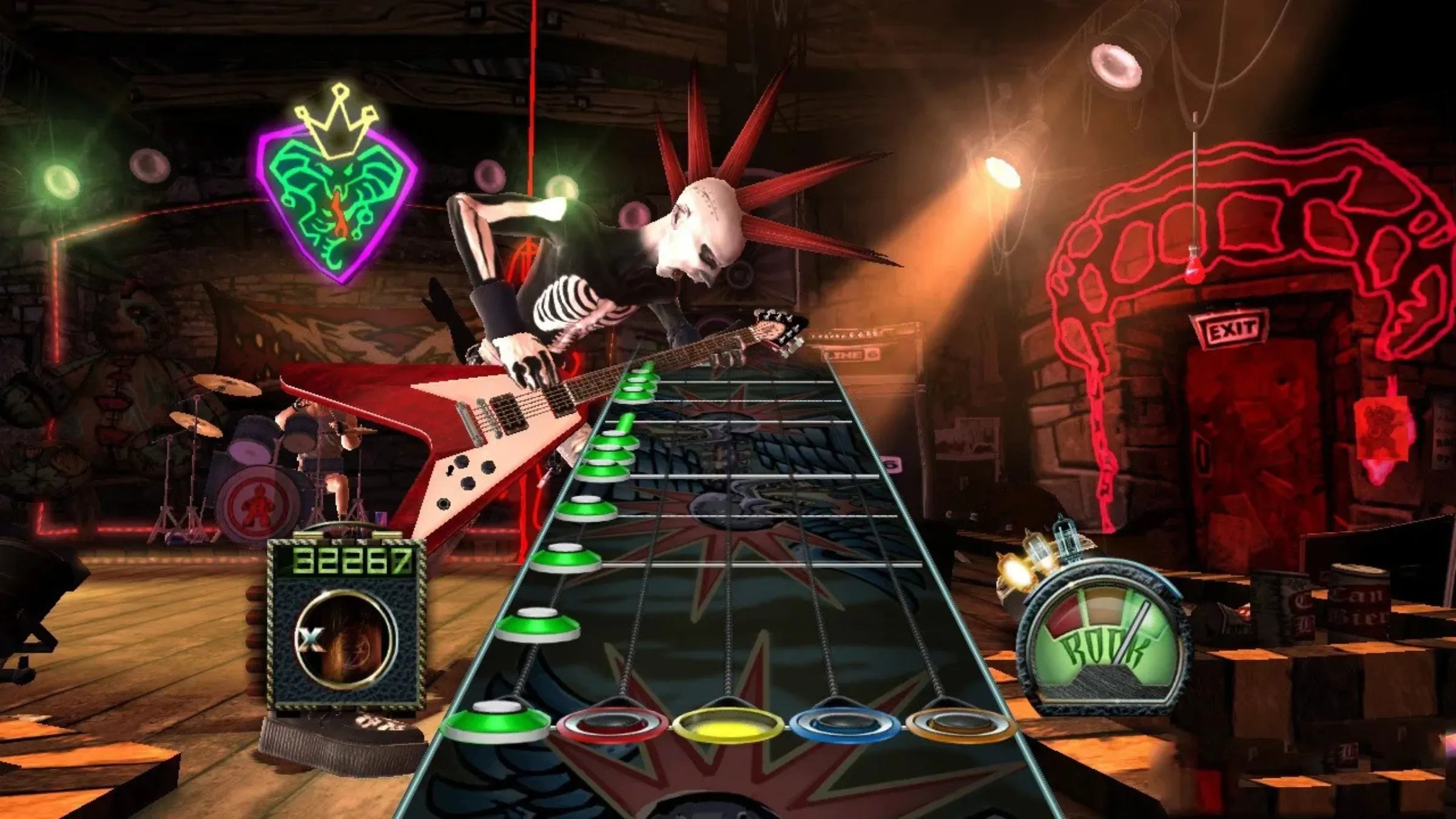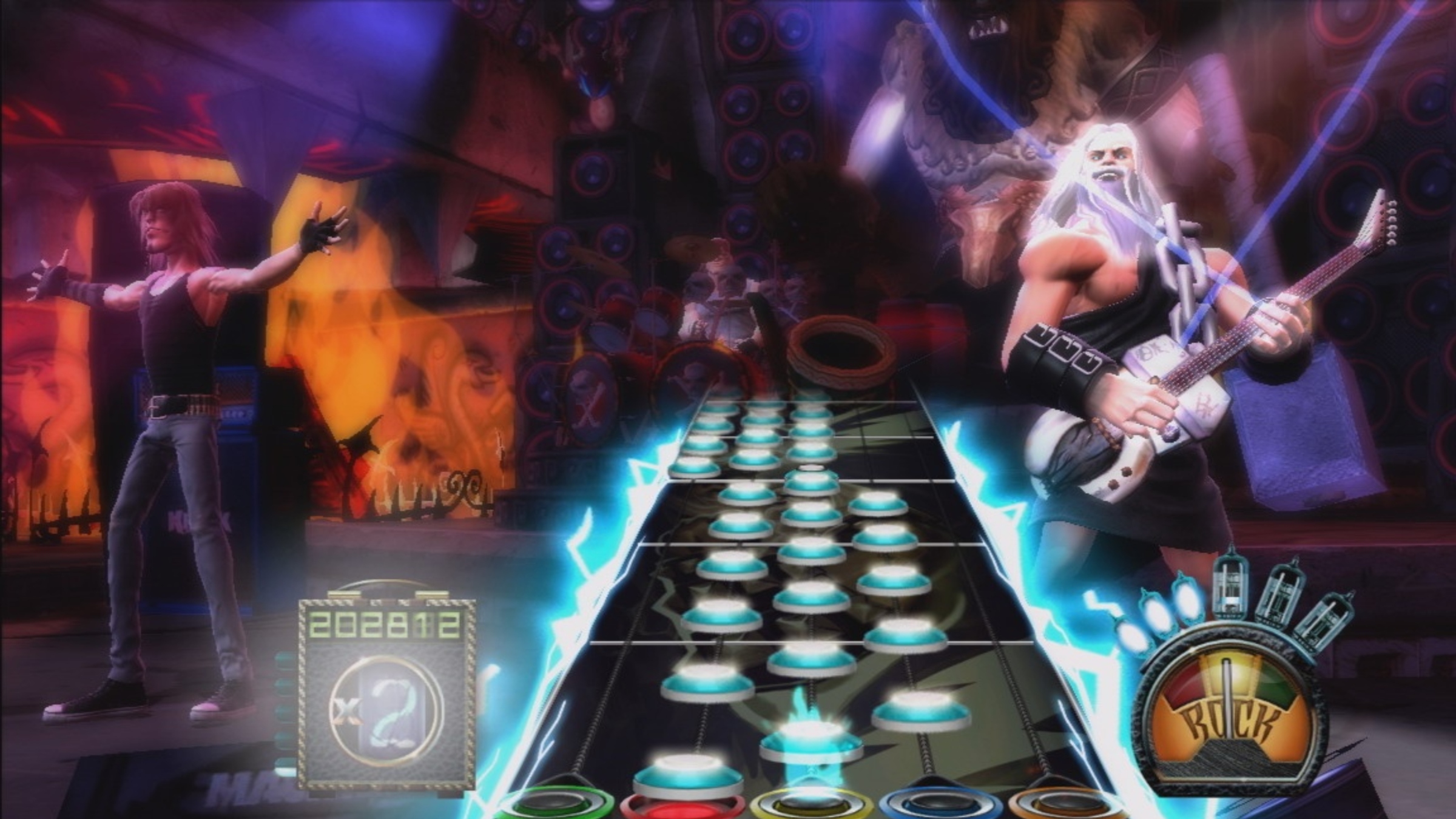
Twenty years ago today, Guitar Hero burst onto the scene and quickly became a huge hit. Although other games had tried to simulate playing an instrument before, Guitar Hero was by far the most popular, both financially and culturally. Starting on the PlayStation 2, it grew into a global phenomenon from what was once a rather unusual concept.
Big gaming companies initially weren’t interested in Guitar Hero, but when it became a hit, they quickly tried to create their own versions – some even bought the original creators. Though the Guitar Hero series eventually faded, it left a lasting impact. Here’s a look at how it briefly became a gaming phenomenon, twenty years after its release.
How Guitar Hero Took Over The World

Released on November 8, 2005, for the PlayStation 2, Guitar Hero rapidly became popular around the world. While it wasn’t the first game to combine music and gameplay – games like Konami’s Guitar Freaks paved the way – and titles like Dance Dance Revolution were already huge hits – Guitar Hero’s success hinged on its innovative guitar-shaped controller. Although music games had existed for a while, the controller made Guitar Hero truly special.
The popular guitar-shaped controller and the music game it was used with were created through a partnership between RedOctane, who designed the controller, and Harmonix, the game developers. The controller was modeled after a Gibson SG guitar to give players the feeling of playing like a rock star at home. Although it generated enough excitement to fund a prototype, several game companies, including Acclaim, worried that the unusual controller would be difficult to sell to most gamers.
The guitar-shaped controller proved to be the main reason Guitar Hero became so popular, immediately attracting players with its innovative design. Reviewers praised how well the controller worked with the game’s timing-based gameplay, creating a truly unique experience. Everyday gamers loved it even more, and the game quickly became a huge hit on the PlayStation 2. In 2005 alone, Guitar Hero earned $45 million, and its success continued to climb.
Guitar Hero Was More Than Just A Game

Guitar Hero had a huge impact on popular culture. Over its ten-year run, the game series generated over $2 billion in sales worldwide. It sparked a wave of similar music games, like Rock Band, even created by the original Guitar Hero developers at Harmonix. The game also appeared in movies and TV shows and proved to game developers that unique hardware could appeal to a wide audience. This was particularly important for the Nintendo Wii, helping to pave the way for its success.
As a movie (or in this case, game) reviewer, I have to say Guitar Hero was more than just a fun experience – it genuinely impacted music and people’s lives. I saw firsthand how it introduced a whole new wave of fans to bands and artists, and incredibly, inspired a generation to actually learn instruments. But it went even further than that! I was amazed to learn about the positive effects it had on people, even helping aspiring musicians hone their skills and aiding in physical therapy by improving coordination and mental development through gameplay. It’s rare a game can have such a broad and positive influence, but Guitar Hero definitely did.
Guitar Hero wasn’t just incredibly popular – it truly resonated with people and even became a substitute for activities like karaoke. Its success reached far beyond gaming, becoming a significant part of popular culture in a way very few games ever have.
Whatever Happened To Guitar Hero?

Though Guitar Hero was incredibly popular for a time, it eventually faded from view. While the original game was a huge success, later versions and sequels didn’t perform as well. This was partly due to competition from games like Rock Band, which built on the Guitar Hero idea by adding more instruments and singing. It was also affected by the economic downturn of the late 2000s, which impacted the video game industry like it did many other areas of life.
Following the huge popularity of the original game, the companies behind it, RedOctane and Harmonix, went their separate ways and were acquired by different studios. Harmonix went on to create Rock Band, which gradually became more popular than Guitar Hero. At the same time, the Guitar Hero brand was stretched too thin with many different versions, ultimately losing its appeal as new games were released too quickly.
For a while after its peak, the Guitar Hero series continued with new games and updates. However, the last official release, Guitar Hero Live in 2015, wasn’t well-received and didn’t sell very well. Eventually, the game’s developer was bought by Ubisoft, and the series faded away. It was a disappointing end for such a popular franchise. Despite this, Guitar Hero‘s impact remains, seen in fan-created games like Clone Hero and through musicians today who first discovered music through the game’s plastic guitar.
Read More
- Best Controller Settings for ARC Raiders
- Stephen Colbert Jokes This Could Be Next Job After Late Show Canceled
- 7 Home Alone Moments That Still Make No Sense (And #2 Is a Plot Hole)
- DCU Nightwing Contender Addresses Casting Rumors & Reveals His Other Dream DC Role [Exclusive]
- Is XRP ETF the New Stock Market Rockstar? Find Out Why Everyone’s Obsessed!
- 10 X-Men Batman Could Beat (Ranked By How Hard It’d Be)
- Pokémon Legends: Z-A’s Mega Dimension Offers Level 100+ Threats, Launches on December 10th for $30
- XRP’s Cosmic Dance: $2.46 and Counting 🌌📉
- Stargate’s Reboot Is More Exciting Thanks to This Other Sci-Fi Series Revival (Which Was Cancelled Too Soon)
- 7 Western Antiheroes (Almost) Better Than Doc Holliday in Tombstone
2025-11-08 22:13